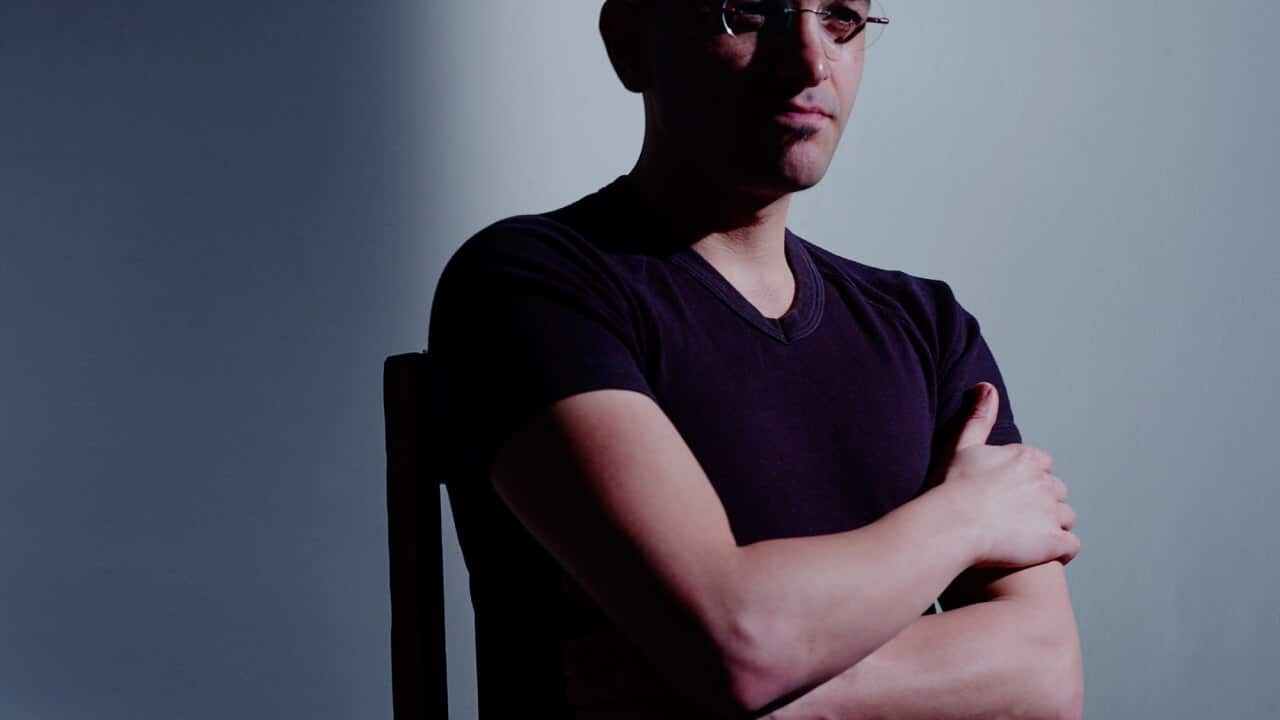“Calling myself a Leb”, says Dr Michael Mohammed Ahmad, “was quite sexy”.
The Arab-Australian author is unpicking a label that he claimed as a boy. The hybrid and uniquely Australian cultural identity has elements of “Arabness and Muslimness”, he says, and has come to symbolise power and struggle. But above all, it is complex: to some, the term “Leb” incites fear; for others it is protective, even seductive.
It is also the name given to the Sydney-based writer’s new novel, a raw and impassioned semi-autobiographical story of life at Punchbowl Boys High School. There, interracial violence sits alongside dismal exam results, underfunding and familial poverty. It is also a place of community strength, cultural jubilation and fierce loyalty.
The Lebs, based around 2003, two years before the Cronulla riots, sings with the literature Ahmad loves and a passion that he hopes will push beyond the one-dimensional and simplistic way he believes Arabs and Muslims are viewed in the Australian public eye, each and every day.
There’s Bani Adam, the literature loving protagonist who dreams to break free from his Leb identity. There’s the power-hungry Osama and the sexually exciting Mrs Leila Haimi. There’s misogyny and racism and, flowing through its pages, the desperation of a teen who feels he is an outsider in his own tribe. And there’s a look into a world that many Australians know only from news headlines.
One moment they are local drug dealers, next they are the national sexual predator, next they are international terror suspects, and so on.
For white Australians, the book “is an invitation to see what it was like in that period when we were constantly seeing ourselves in the news, being turned into terror suspects and gang rapists and drug dealers. Come and see what it is like to be in one of those boys’ heads and see how traumatic that time was,” Ahmad, 32, tells SBS Life.
The tale is not far off his childhood. His parents and grandparents arrived from Lebanon in the 1970s and in 2003 he graduated from Punchbowl Boys - once labelled the worst school in NSW - in the years in which the book was set. He is part of a third generation Lebanese community referred to as a “mistake” by Immigration Minister Peter Dutton in 2016.
“I believe Arab and Muslim men in [white] Australian culture have adopted the persona of a folk devil … One moment they are local drug dealers, next they are the national sexual predator, next they are international terror suspects, and so on,” Ahmad says. And while the terms “Arab” and “Muslim” are mistakenly interchanged, both are treated as the “foreign menace”, he adds.
Switch the lens onto Australian culture as a whole, including how Muslim and Arab men portray themselves, and the outlook is more nuanced for Ahmad, who also runs Sweatshop, a literacy program devoted to empowering those from culturally and linguistically diverse backgrounds in Western Sydney.
“If you look at my work, as well as the work of other Arab-Australian and Muslim-Australian male writers, from David Malouf to Omar Sakr to Omar Musa, you find an incredibly diverse, complex, intellectual and critical portrayal of who and what we are,” he says.
Indeed, an understanding of different perspectives defines his work and flows through The Lebs, which sees an internal struggle by Bani as he attempts to slough away his Leb background only to reclaim it and all it represents - not least gang culture.
These are my stories, this comes from my community, this is my culture, my history.
“It can be empowering to perform as a gangster, especially if you’re marginalised. If someone’s constantly criticising you and pigeonholing you as a menace, you can start to feel empowered by saying ‘Yes, that’s what I am’,” explains Ahmad of one element of Leb culture.
“Bani realises ‘This is just what I am’. And there’s got to be something beautiful in just being who you are.”
The book, released next week, follows tomorrow’s premier of Muslims Like Us, a two-part program that takes aim at narrowmindedness and bigotry. In the SBS show, 10 Australian Muslims live together for eight days, putting diverse stories of Islam into the hands of those to whom they matter most.
But, despite the book and the show, it remains hard to envision a cultural shift away from constricted views of Arabs and Muslims in Australia, if, at the very top, messages such as Dutton’s take on Lebanese immigration dominate.
In a way, The Lebs is a product of the political environment - it is a call to arms to marginalised young Australians to find a voice and to start telling their stories, the way they want them to be told. It’s why Bani Adam is so called: his name means “humankind” in Arabic. People, it’s time to start telling your stories, in all their human knottiness.
“I wanted to offer a really complex representation of who these people are. It’s about reclaiming the narrative because that narrative has historically been hijacked,” says Ahmad.
“These are my stories, this comes from my community, this is my culture, my history. If you want to know us, you’re going to have to come to us.”
'The Lebs' is published by Hachette and is on sale from on February 27.
What does it mean to be a Muslim in modern Australia? Ten Australian Muslims from diverse backgrounds move in to a house for eight days.
Through honest dialogue and passionate debate, the group reveals what it is to be an Australian Muslim today.
premieres on SBS and SBS On Demand on 21 & 22 February at 8:30pm. Watch the collection on SBS On Demand.
TRAILER:





